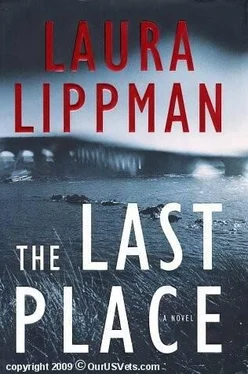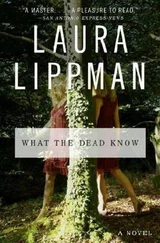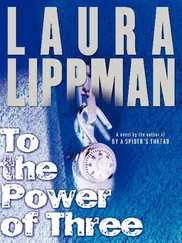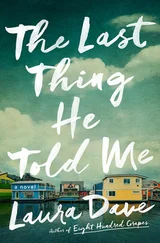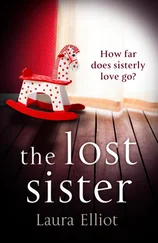“Poor choice of words.” Whitney was maddening when she was reasonable. “One doesn’t go charging into a meeting with people who are paying you-paying you quite well, by the way-and accuse them of being incompetents. There were bound to be a few glitches along the way.”
“Glitches? I was told Julie Carter was dead and she pops up alive. Hazel Ligetti died in a fire that appears to have been set accidentally by someone who didn’t even know her. The investigators in Frederick may not have been brilliant, but they were competent. These cases are worthless.”
“Let us worry about how to lobby the General Assembly,” Whitney said. “For now, make nice with the board. You work for the entire group, remember?”
Tess did. She took a deep breath and smoothed back a tendril of hair that had snaked from her widow’s peak, just like the little girl with the curl. She would be good, she would be very, very good.
They were the last to arrive, a Whitney power play: Summon everyone to your office, then make them wait. Tess watched with barely concealed amusement-and impatience-as the other members of Whitney’s consortium unpacked the lunches they had brought to their “brown bag” meeting. Lunch told so much about a person. Even how one carried a lunch indicated a lot. Only one person here, for example, had a literal brown bag, and it happened to be the group’s lone male member, Neal Ames. He pulled a bologna sandwich on white bread, an apple, and a bag of Utz pretzels from the soft crinkled sack, which had obviously been recycled several times. Earnest and idealistic, if not particularly imaginative, Tess decided.
Now the woman in the middle of the table, Miriam Greenhouse, the executive director of the city’s best-known women’s shelter, had brought a fashionable-looking salad, a chocolate cream cheese muffin, and a Diet Mountain Dew: caffeine junkie, much too busy to pack her own lunch. The two other women, still in their twenties, had Diet Cokes, Greek salads, and low-calorie yogurt, which Tess found mildly depressing. Regular yogurt should be abstemious enough. Finally, there was Whitney, who wasn’t eating at all. Probably another power play on her part.
Tess unwrapped her own lunch and tried to decode what message she was sending: turkey sub with lettuce, tomato, and extra hots, a bag of Utz crab chips, and a real Coca-Cola. She didn’t know what those gathered around the table saw, but she knew who she was: a diet-averse, shellfish-allergic hometown girl who had never tasted crab seasoning until Utz had the brilliant idea of putting it on potato chips.
“So bring us up to date,” said Miriam Greenhouse, the woman from the shelter, taking the lead. She was the kind of woman to whom others automatically deferred-confident, calm, with a hint of an edge that allowed her to stay confident and calm, because no one wanted to find out what would happen if she was pushed. “What kind of lapses have you discovered so far? What warning signs were ignored, what clear signs of danger were missed in these women’s cases?”
Tess, who had just bitten into her sandwich, had to work her way to the end of the mouthful, holding a finger aloft as she chewed for what seemed like a lifetime.
“Sort of the opposite,” she said, after swallowing. It had the feel of an anticlimax.
“You’ve made no progress? But Whitney said you’ve already submitted expenses for your trip to Frederick and Washington counties.”
“I submit my expenses weekly. It is possible to rack up quite a bit of mileage without-” She paused, not sure of what she wanted to say, how she wanted to phrase it. She had come in loaded for bear. How had she ended up on the defensive?
The man, Neal Ames, rushed into the pause. “That wasn’t a cheap meal you had in West Virginia. Nor was it a cheap motel. Couldn’t you have stayed in lodgings more reasonable than the Bavarian Inn?”
No one had second-guessed Tess’s expenses since her newspaper days, when the accounting department flagged any tip above 15 percent. “I could have avoided a hotel altogether, driving back and forth over two days. But that would have doubled my time on the road- which is billed hourly-and resulted in extra mileage of almost seventy-five dollars. So I think, given that information, I was entitled to stay where I wished and eat what I wanted.”
But his attack had emboldened the others.
“What about this line item, forty dollars for Troy Plunkett?” asked the one Tess thought of as Strawberry Yogurt, because she not only had pale pink yogurt in front of her, she had on a pale pink blouse and a gingham plaid headband with the same shade of pink in it. “Did you get a receipt?”
“I paid Plunkett to speak to me. It’s not uncommon in my business.”
Now Banana Yogurt, who had not color-coordinated her outfit to her lunch but did have hair just a shade darker than her Dannon, stared at Tess with round eyes. “You pay people to talk to you? Isn’t that unethical?”
“Not in my business, no. It’s a consideration of their time. I pay people what I think their time-and information-is worth.”
“And did you get forty dollars’ worth out of Mr. Plunkett?” This was Ames, who seemed awfully pleased with himself for having opened up this line of inquiry.
“Yes, I did. But I got the biggest bang for my buck just by driving out to northwest Baltimore County, near Prettyboy Reservoir, where I met one of our ”victims’ face-to-face. Julie Carter is alive, ladies and gentleman. A fact that, coupled with the dead ends on the other two cases, makes me wonder if this board has its collective head up its collective ass. How did you come up with these names, anyway, throw darts at a dartboard? Just plug HOMICIDE and MARYLAND into a search engine and see what kicked out?“
Whitney raised an eyebrow at Tess, and Whitney was capable of encapsulating a world of meaning in that small gesture. The problem was, Tess couldn’t decode this facial semaphore. Was she overstepping, forgetting whom she worked for in this situation? She had intended to play nice but had lost her resolve when they began poring over her expenses. The Yogurt Twins looked shocked, while Neal Ames was tapping his pen on the table’s edge as if he wished he could bounce something off her skull.
But Miriam Greenhouse, the ostensible leader, looked amused.
“Our selection was random, I admit. We thought that was purer, if you will. We picked open homicides outside Maryland’s incorporated cities and the bigger counties. Neal, you compiled the list, right?”
“Actually, it was a volunteer for the Tree Foundation.” Ah, Tess had forgotten he was Luisa O’Neal’s representative on the board. Well, she had disliked him from the start, so she came by her revulsion honestly. “An unpaid volunteer,” he added.
“As opposed to the paid variety?” But Tess’s nitpick sailed over the lawyer’s head as he deflected blame to his poor anonymous volunteer-and then cloaked himself in righteous virtue over the fact that anyone would try to blame a poor anonymous volunteer.
“Well, at least two of them have been in the ballpark so far. The Tiffani Gunts case is ripe to reopen, right? The new sheriff says the old one was incompetent.”
“Yes, but the ex-boyfriend is not a suspect, so it’s not a domestic. Look, I met the guy. Whatever he is, he’s not some criminal mastermind who staged a robbery to kill his girlfriend because they were fighting over child support. He has more ingenious ways of avoiding his obligations.”
“How’s that?” Miriam asked, eyes narrowed. Financial support was an important component of the shelter’s work. If Safehouse’s staff couldn’t get estranged husbands to pay battered women child sup-port-or have the man evicted from the house-the women’s odds of escaping were greatly reduced.
Читать дальше
